
Canada Joins US Trade Complaint Against Mexico’s GMO Corn Ban
Canada will join a trade dispute initiated by the US over Mexico’s restrictions on genetically modified corn imports.
2023-06-09 21:47
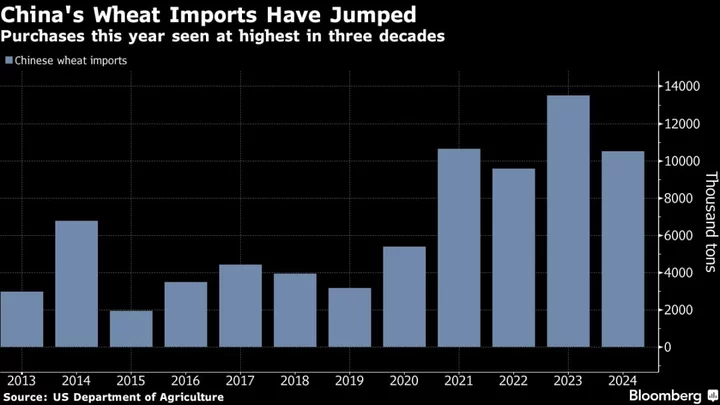
China Will Feed More Wheat to Animals After Rain Damages Crop
China will feed a lot more of its domestic wheat crop to hogs and poultry this year after
2023-06-09 14:56
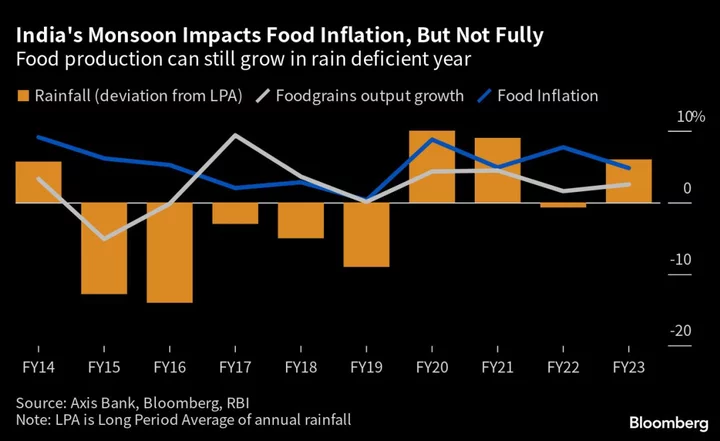
Das Needs Monsoon Rains to Deliver Before Weighing Rate Cuts
As Reserve Bank of India Governor Shaktikanta Das made the case for inflation risks arising from a delayed
2023-06-09 13:45

A Night Train Through Europe’s Heart Has a Lot Riding On It
Brussels Midi isn’t the most seductive of Europe’s railway stations. The modern hub in the Belgian capital lacks
2023-06-09 12:24
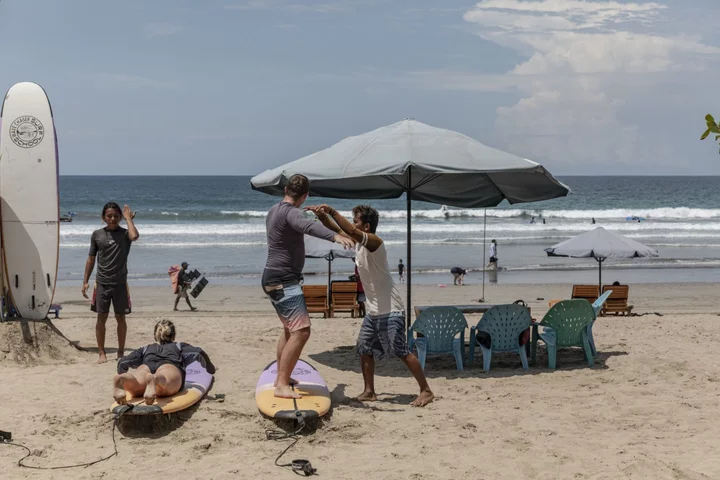
Bali Seeks a New Kind of Tourist After Kicking Out 136 Unruly Visitors This Year
Indonesia’s paradise island teeming with beaches and lush rice fields wants to refocus its tourism away from guests
2023-06-09 06:58
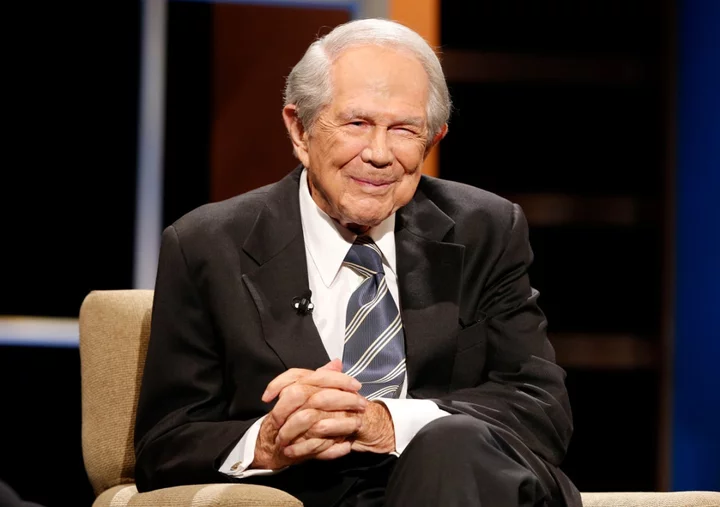
Pat Robertson dies at 93; founded Christian Broadcasting Network, Christian Coalition
Pat Robertson, a religious broadcaster who turned a tiny Virginia station into the global Christian Broadcasting Network, tried a run for president and helped make religion central to Republican Party politics in America through his Christian Coalition, has died. He was 93. Robertson's death Thursday was announced by his broadcasting network. No cause was given. Robertson’s enterprises also included Regent University, an evangelical Christian school in Virginia Beach; the American Center for Law and Justice, which defends the First Amendment rights of religious people; and Operation Blessing, an international humanitarian organization. But for more than a half-century, Robertson was a familiar presence in American living rooms, known for his “700 Club” television show, and in later years, his televised pronouncements of God’s judgment on America for everything from homosexuality to the teaching of evolution. The money poured in as he solicited donations, his influence soared, and when he moved directly into politics by seeking the GOP presidential nomination in 1988, he brought a huge following with him. Robertson pioneered a now-common strategy of courting Iowa’s network of evangelical Christian churches, and finished in second place in the Iowa caucuses, ahead of Vice President George H.W. Bush. At the time, Jeffrey K. Hadden, a University of Virginia sociologist and a Robertson biographer, said Robertson's masterstroke was insisting that three million followers across the U.S. sign petitions before he would decide to run. The tactic gave him an army. ″He asked people to pledge that they’d work for him, pray for him and give him money,” Hadden told The Associated Press in 1988. ″Political historians may view it as one of the most ingenious things a candidate ever did.″ Robertson later endorsed Bush, who won the presidency. Pursuit of Iowa’s evangelicals is now a ritual for Republican hopefuls, including those currently seeking the White House in 2024. Robertson started the Christian Coalition in Chesapeake in 1989, saying it would further his campaign’s ideals. The coalition became a major force in Republican politics in the 1990s, mobilizing conservative voters through grass-roots activities. By the time of his resignation as the coalition's president in 2001 — Robertson said he wanted to concentrate on ministerial work — his impact on both religion and politics in the U.S. was “enormous,” according to John C. Green, an emeritus political science professor at The University of Akron. Many followed the path Robertson cut in religious broadcasting, Green told the AP in 2021. In American politics, Robertson helped “cement the alliance between conservative Christians and the Republican Party.” Marion Gordon “Pat” Robertson was born March 22, 1930, in Lexington, Virginia, to Absalom Willis Robertson and Gladys Churchill Robertson. His father served for 36 years as a U.S. Representative and U.S. Senator from Virginia. After graduating from Washington and Lee University, he served as assistant adjutant of the 1st Marine Division in Korea. He received a law degree from Yale University Law School, but failed the bar exam and chose not to pursue a law career. Robertson met his wife, Adelia “Dede” Elmer, at Yale in 1952. He was a Southern Baptist, she was a Catholic, earning a master’s in nursing. Eighteen months later, they ran off to be married by a justice of the peace, knowing neither family would approve. Robertson was interested in politics until he found religion, Dede Robertson told the AP in 1987. He stunned her by pouring out their liquor, tearing a nude print off the wall and declaring he had found the Lord. They moved into a commune in New York City’s Bedford-Stuyvesant neighborhood because Robertson said God told him to sell all his possessions and minister to the poor. She was tempted to return home to Ohio, “but I realized that was not what the Lord would have me do ... I had promised to stay, so I did,” she told the AP. Robertson received a master’s in divinity from New York Theological Seminary in 1959, then drove south with his family to buy a bankrupt UHF television station in Portsmouth, Va. He said he had just $70 in his pocket, but soon found investors, and CBN went on the air on Oct. 1, 1961. Established as a tax-exempt religious nonprofit, CBN brought in hundreds of millions, disclosing $321 million in “ministry support” in 2022 alone. One of Robertson’s innovations was to use the secular talk-show format on the network’s flagship show, the “700 Club,” which grew out of a telethon when Robertson asked 700 viewers for monthly $10 contributions. It was more suited to television than traditional revival meetings or church services, and gained a huge audience. “Here’s a well-educated person having sophisticated conversations with a wide variety of guests on a wide variety of topics,” said Green, the University of Akron political science professor. “It was with a religious inflection to be sure. But it was an approach that took up everyday concerns.” His guests eventually included several U.S. presidents — Jimmy Carter, Ronald Reagan and Donald Trump. At times, his on-air pronouncements drew criticism. He claimed that the terrorist attacks that killed thousands of Americans on Sept. 11, 2001 were caused by God, angered by the federal courts, pornography, abortion rights and church-state separation. Talking again about 9-11 on his TV show a year later, Robertson described Islam as a violent religion that wants to “dominate” and “destroy,” prompting President George W. Bush to distance himself and say Islam is a peaceful and respectful religion. He called for the assassination of Venezuelan President Hugo Chavez in 2005. Later that year, he warned residents of a rural Pennsylvania town not to be surprised if disaster struck them because they voted out school board members who favored teaching “intelligent design” over evolution. And in 1998, he said Orlando, Florida, should beware of hurricanes after allowing the annual Gay Days event. In 2014, he angered Kenyans when he warned that towels in Kenya could transmit AIDS. CBN issued a correction, saying Robertson “misspoke about the possibility of getting AIDS through towels.” Robertson also could be unpredictable: In 2010, he called for ending mandatory prison sentences for marijuana possession convictions. Two years later, he said on the “700 Club” that marijuana should be legalized and treated like alcohol because the government’s war on drugs had failed. Robertson condemned Democrats caught up in sex scandals, saying for example that President Bill Clinton turned the White House into a playpen for sexual freedom. But he helped solidify evangelical support for Donald Trump, dismissing the candidate's sexually predatory comments about women as an attempt “to look like he’s macho.” After Trump took office, Robertson interviewed the president at the White House. And CBN welcomed Trump advisers, such as Kellyanne Conway, as guests. But after President Trump lost to Joe Biden in 2020, Robertson said Trump was living in an “alternate reality” and should “move on,” news outlets reported. Robertson’s son, Gordon, succeeded him in December 2007 as chief executive of CBN, which is now based in Virginia Beach. Robertson remained chairman of the network and continued to appear on the “700 Club.” Robertson stepped down as host of the show after half a century in 2021, with his son Gordon taking over the weekday show. Robertson also was founder and chairman of International Family Entertainment Inc., parent of The Family Channel basic cable TV network. Rupert Murdoch’s News Corp. bought IFE in 1997. Regent University, where classes began in Virginia Beach in 1978, now has more than 30,000 alumni, CBN said in a statement. Robertson wrote 15 books, including “The Turning Tide” and “The New World Order.” His wife Dede, who was a founding board member of CBN, died last year at the age of 94. The couple had four children, 14 grandchildren and 24 great-grandchildren, CBN said in a statement. ____ Former Associated Press reporter Don Schanche contributed to this story.
2023-06-08 21:55
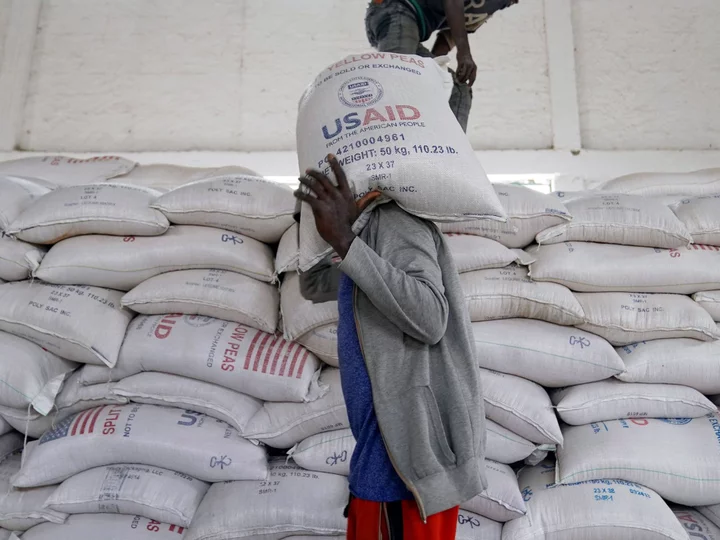
US Suspends Food Aid to Ethiopia After Probe Finds It’s Being Diverted or Sold
The US Agency for International Development suspended food aid to Ethiopia after an investigation showed supplies from international
2023-06-08 21:50
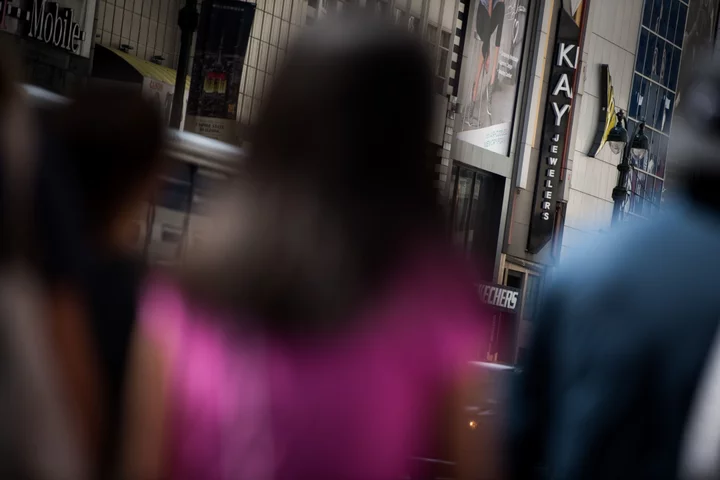
Kay Jewelers Owner Falls After It Slashes Annual Outlook
The owner of Kay Jewelers and Zales slashed its outlook for the remainder of the fiscal year as
2023-06-08 21:17
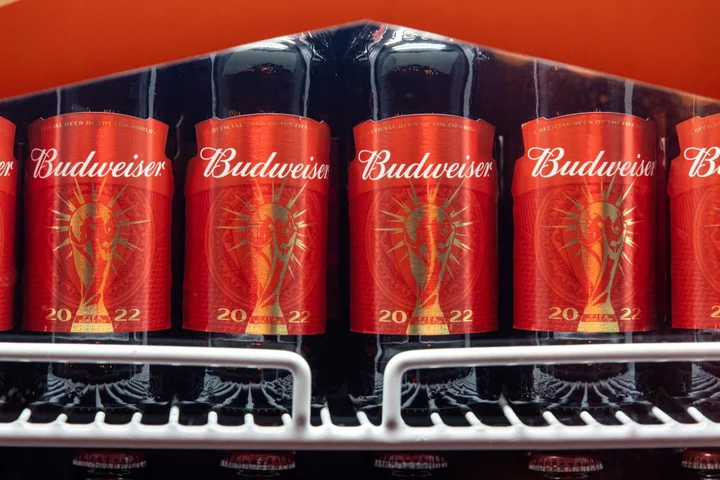
Budweiser Owner to Sponsor Football World Cups For Both Women and Men
Anheuser-Busch InBev will sponsor the women’s 2023 World Cup in a nod to one of football’s fastest-growing areas,
2023-06-08 19:23

Hong Kong’s $900,000 a Month Retail Lease Is Biggest Since Covid Ended
A mall in Hong Kong’s premier shopping district of Tsim Sha Tsui rented three floors to a dining
2023-06-08 10:25
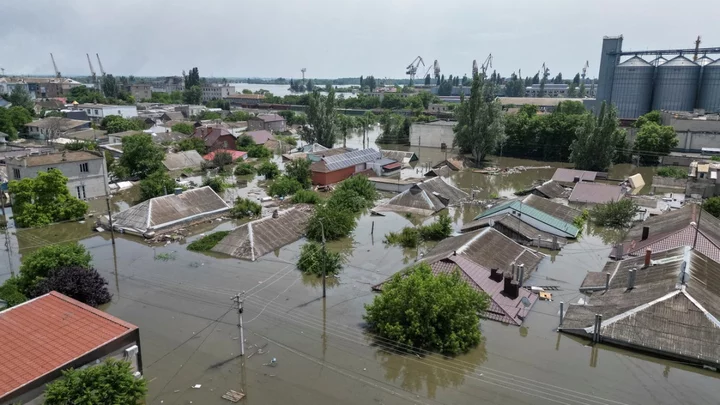
Ukraine’s fields could become deserts and spark global food crisis in wake of dam destruction, officials warn
The destruction of the Nova Khakhovka dam will likely turn Ukraine’s southern fields “into deserts” within the year – sparking a global food security crisis, top Ukrainian officials have warned. Ukraine’s emerency services are carrying out rescue operations across dozens towns and villages in the wake of the dam – which is under Russian occupation – unleashing the waters of one of Europe’s largest reservoirs across the war-torn south. The deluge has destroyed homes, drowned animals, severed clean water supplies and forced thousands of people to evacuate. The sudden emptying of the reservoir has crippled key irrigation systems in three surrounding regions. That has stopped the water supply to nearly 600,000 hectares of agricultural land, and endangered the production of 4 million tonnes of grain and oil crops, Ukraine's agricultural ministry wrote in a statement. “The fields in the south of Ukraine may turn into deserts as early as next year,” the ministry said, adding that the surrounding countryside and water supplies have also been destroyed and fish stock killed. “In total, according to preliminary calculations, the losses from the death of all biological resources will amount to [$285 million dollars],” it concluded. Mykhailo Podolyak, a chief advisor to President Zelenksy, warned this “global ecological disaster” could impact worldwide food supplies, as Ukraine, nicknamed the bread basket of the world, is a major producer of grains and oils. “The instantaneous death of a large number of fish and animals, the waterlogging of drained lands and the change in the climatic regime of the region will later be reflected in the food security of the world,” he told The Independent. Ukraine holds the western bank of the Dnipro River near the dam - where some 16,000 people were affected by the flood. Russia controls the eastern side, which is lower and more vulnerable to flooding and where some 22,000 people are impacted. About 3,000 people have already been evacuated from flooded areas on both sides of the river, officials said. The Ukrainian military has blamed Moscow for the attack, saying Russia wants to prevent an advance by Ukrainian forces. The Kremlin denies the accusations saying Kyiv is seeking to distract from a “failing” counteroffensive, that is ongoing. The Kakhovka hydroelectric dam and reservoir are essential for drinking water and irrigation for a huge area of southern Ukraine and the Crimean Peninsula, which has been occupied by Russia since 2014. It lies in a part of the Kherson region that has been controlled by Moscow's forces for the past year since President Vladimir Putin launched his invasion. On Wednesday the authorities and charities rushed to get drinking water and food supplies to the flooded areas and to help save those who are stranded. In the city, people used boats and rafts to try to find missing inhabitants, while others waded through knee-deep water clutching their belongings. “There were people standing on the street just in their underwear because the water had come in too fast and submerged their homes and belongings,” said Yuliya Konovalova, an aid worker who works for Ukrainian animal charity Hachiko. She had spent the day bringing hot meals and water to the inhabitants of Kherson, and rescuing and feeding stranded pets. "The water was rising so fast we hope those people manage to escape,” she added. She said in the centre of the city trains were leaving every two hours despite the flooding and the shelling to ferry people to the nearby city of Mykolaiv “It is a disaster, it is a catastrophe, it is difficult to understand how it is possible.” “It was a really painful day, on the way back I was crying,” she added breaking down in tears. Ukrainian President Volodymyr Zelensky said that Russian soldiers were shooting from a distance while rescue attempts were in progress. "As soon as our helpers try to save them, they are shot at," he told German newspapers Bild and Die Welt and also Politico. The country’s deputy prime minister, Oleksandr Kubrakov, also warned of drifting landmines unearthed by the flooding. "Water is disturbing mines that were laid earlier, causing them to explode," Mr Kubrakov said. “As a result of the flooding, infectious diseases and chemicals were getting into the water,” he added. Mr Zelensky said later said on Telegram he had spoken to French President Emmanuel Macron about the environmental and humanitarian situation in the Kherson region. "I laid out Ukraine's general needs in dealing with the disaster. And we discussed the possibility of involving international mechanisms to investigate its causes," the president said. Meanwhile, in his first public comments on the disaster, President Putin repeated Moscow's line that Ukraine is to blame for destroying the Kakhovka dam. In a call with Turkish President Recep Tayyip Erdogan, Mr Putin alleged that Kyiv authorities had escalated "war crimes, openly using terrorist methods and staging acts of sabotage on the Russian territory," the Kremlin said in its account of the call. Read More Ukraine-Russia war news – live: Exploding mines float through floodwater after Kherson dam attack ‘Hard to control emotions’ amid Kherson flooding, says Ukrainian aid worker A dam bursts, but this barbaric attack will not halt Kyiv’s ‘big push’ Ukraine’s long-term future to be on agenda at Sunak and Biden meeting The Body in the Woods | An Independent TV Original Documentary The harrowing discovery at centre of The Independent’s new documentary
2023-06-08 03:25
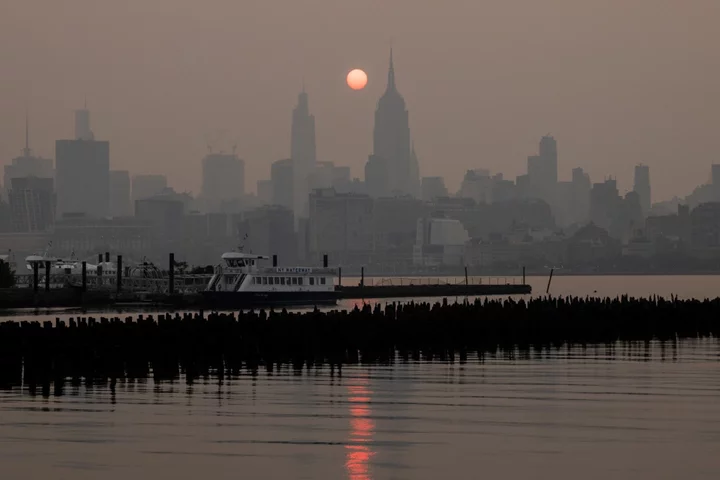
Flights to LaGuardia Airport Grounded as Smoke Blankets NYC
A growing number of flights were delayed at major airports in the New York City area as smoke
2023-06-08 03:23
